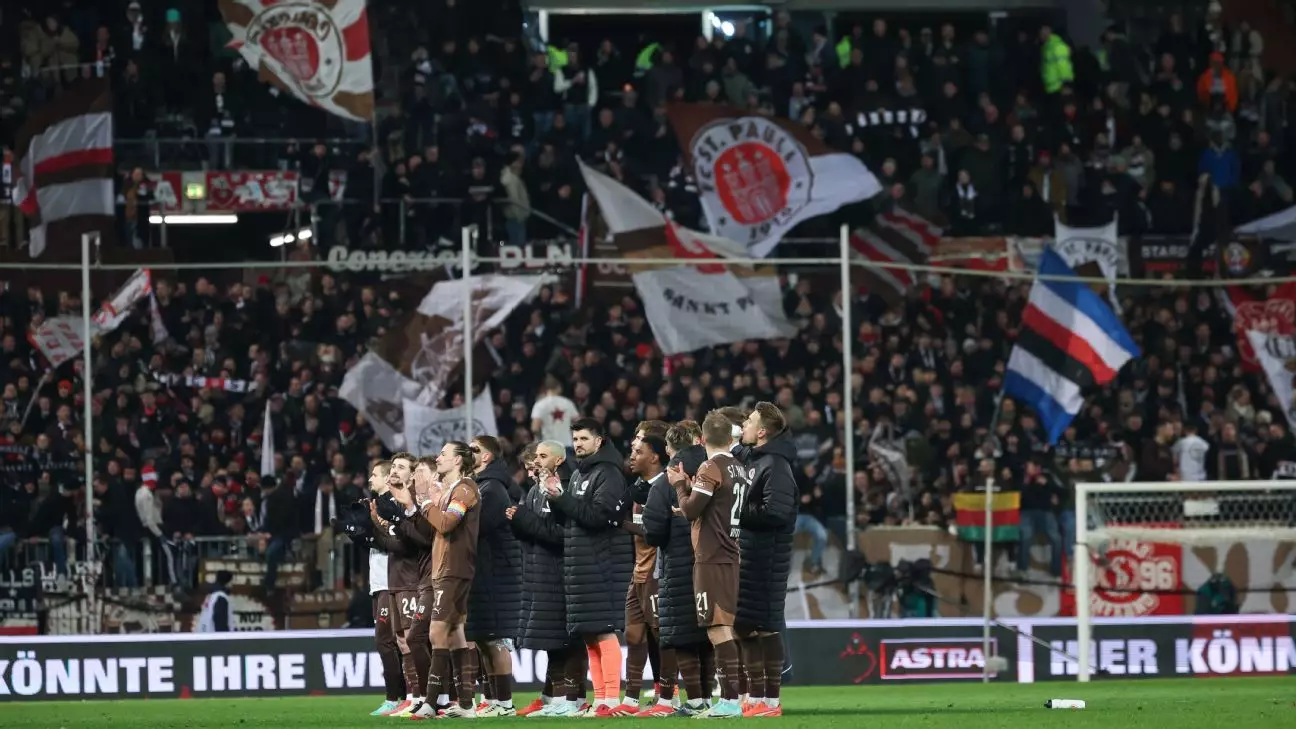In a landmark move for fan engagement and club governance, St. Pauli supporters have collectively raised over $29.1 million (€27 million) to acquire a majority stake in their beloved Millerntor Stadium. This achievement marks a significant milestone not just for the Hamburg-based club, but also for the broader landscape of German football, as it represents the first fan cooperative initiative in the Bundesliga. The sheer number of over 21,000 participants underscores a passionate and united community willing to invest in their club’s future.
This collective action showcases how fans can transcend the role of passive spectators to become active stakeholders, fundamentally reshaping how clubs interact with their supporters. Such engagement not only fosters a deeper connection between fans and their teams but also provides a model for financial sustainability that can inspire other clubs facing economic hardships. By investing in their club, fans have asserted their desire for ownership and influence, challenging the traditional top-down approach that often characterizes club management.
The Mechanics of the Movement
The subscription period, which spanned nearly five months, culminated in a frenzy of activity just before the deadline, as supporters rushed to secure their shares. Each share was priced at $917 (€850), with a significant portion directed towards necessary fees and contributions. This commitment reflects a profound emotional investment from supporters, who envisioned a future where they can directly influence key decisions affecting their club.
Interestingly, the allure of prizes like a dinner with team captain Jackson Irvine and exclusive merchandise served to enhance the appeal of buying shares. This innovative approach not only motivated participation but also illustrated how engaged fan bases can create mutually beneficial relationships, where passion for the game coincides with tangible returns.
A Solidarity-Based Approach to Financial Stability
Commercial director Wilken Engelbracht emphasized how this cooperative would streamline financial obligations, ultimately allowing the club to stabilize its financial footing more swiftly. Club president Oke Göttlich echoed this sentiment by expressing aspirations for Bundesliga survival, highlighting the urgency and practicality behind this initiative. Recent performance has left St. Pauli three points clear of the relegation zone, and the urgency for long-term planning could not be higher.
Having a majority stake in Millerntor Stadium also means greater autonomy in financial matters, control over revenue generation, and the ability to reinvest in the club’s pursuits. This autonomy is crucial in today’s hyper-commercialized football environment where clubs often find themselves at the mercy of outside investors whose priorities may not align with those of the supporters.
A Glimpse into the Future
As the cooperative’s board begins to process outstanding orders and finalize the figures, anticipation builds toward the general meeting slated for June. This milestone will further solidify the foundation for a collaborative approach to running the club. Stakeholder engagement is set to evolve, paving the way for a more democratic mechanism to tackle challenges both on and off the pitch.
As evidenced by the endorsements from influential figures in football, such as Bayern Munich’s Uli Hoeness, the implications of St. Pauli’s cooperative endeavor extend beyond its own borders. It represents a compelling narrative in which the traditional football club transforms into a shared community asset, fostering unity, loyalty, and responsible governance. In an era where fan loyalty is often tested, St. Pauli’s journey serves as a beacon of hope, signaling empowerment and a more inclusive future for all football enthusiasts.

